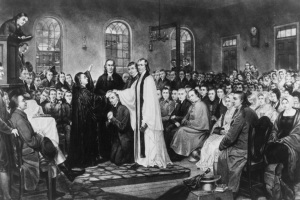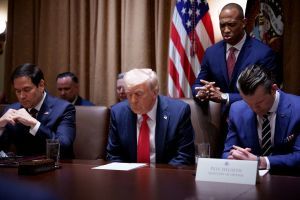Notable Lawyer's 'Disappearance' Exposes China's Hate of Religious Freedom

My friend, Li Heping was "disappeared" on July 10, 2015.
Detained by China's security apparatus, Li Heping, a practicing Christian, has not been seen for 365 days by his wife or child, nor his chosen lawyers and diplomats rightly concerned about his safety.
Seized in the first wave of China's infamous "709" crackdown on hundreds of rights lawyers and activities, for a year Li Heping has been held in isolation, his only company round-the-clock security guards, punctuated by lengthy interrogations. Longtime observers of "disappeared" lawyers state there is a high probability of intense psychological and probably physical torture.
Who is Li Heping and what does his treatment tell us about freedom of religion and speech in China?

His powerful impulse to defend the weak and vulnerable grew out of Li Heping's early life in nearby populous Henan Province. From a poor family, he started his legal career in 1997 as a commercial lawyer. He moved to Beijing and quickly built the Global Law firm into a powerhouse of rights defense where many of China's most vocal rights lawyers concentrated their practice.
Like his rights colleagues, Li Heping took on high profile environmental pollution cases and the subsequently famous cause of blind lawyer Chen Guangcheng. He got deeply involved in many highly charged cases of property and land seizures by the government, and cases of religious freedom, most controversially defending Falun Gang adherents whose brutal persecution made rights defense dangerous even for the lawyers. In recent years he pulled back from the "front line" and led a fight against torture in China's justice system. He led workshops on international UN standards that define torture and recommended practices that restrained it.
Joined by other leading China rights lawyers, President George W. Bush hosted Li Heping at the White House and he gained international prominence in the media and international human rights organizations. Now he is confined to a cell.
Internationally acclaimed artist Ai Weiwei once told me, China has become a police state built on fear. Those who speak freely are crushed. They become like slaves.
By contrast, consider Li Heping's views about his Christian faith, China's legal system, and China's future. As a Christian, Li believes passionately in equality.
"Everyone according to this belief is a sinner," he says, "whether you are an ordinary citizen or the president." Yet because "all sinners are created by God and in the image of God all sinners have dignities and rights that should be protected."
In a country where the taking of property, of homes and farms, causes widespread anger, Li Heping is moved by the story of King David being publicly rebuked for taking a tiny vineyard from a poor person and adding it to his vast wealth.
Like Martin Luther King, he affirms passionately the Bible's call "to love mercy, do justice, walk humbly with your Lord." Love and forgiveness are paramount. He once said Christians need to be able to forgive even those who persecute them. All persons in China, he believes, should be free to worship, to believe or not to believe. The state and the church should be separate. No government should be able to classify certain religions as illegal cults.
Li Heping's Christian beliefs directly influence the way he thinks about China's legal system. Christians always need to be asking, not only is this lawful, is it just?
"God commands us to understand justice in this world," he has said.
A just legal system requires respect for the constitution and separation of powers. It needs to guarantee President Roosevelt's four freedoms: freedom from fear; freedom of worship; freedom from want; freedom of speech.
Justice, he believes, requires that the law protect property rights. Li Heping wants major changes in China's criminal justice system. Confession by torture has to stop. Party cadres should not overrule judges in "sensitive" cases. Detainees should have access to lawyers they choose. All persons should be equal before the law — and protected by the law — a fundamental principle, he says, of a rule of law society.
Li Heping loves China and its people. His vision of China would replace violence by love, arbitrary power by rule of law, brutal repression with forgiveness, authoritarian law with just law, unequal treatment with equality before the law. He speaks love to hear, truth to power, respect for citizen's grievances and beliefs, not their suppression.
Christians, like all Chinese, he believes should work patiently and peacefully towards a society that respects universal values, upheld by the UN and rule of law societies. If these beliefs make him more dangerous than Osama Bin Laden, as he was once told, then this tells the world that China is far outside the values inscribed in international law and the Universal Declaration of Human Rights.
It is time Li Heping and his fellow rights lawyers were released. It is time for China's Communist Party to turn away from violence and fear, torture and disappearances, and follow Li Heping's path of justice and equality, peace and forgiveness, constitutionalism and the rule of law.





























